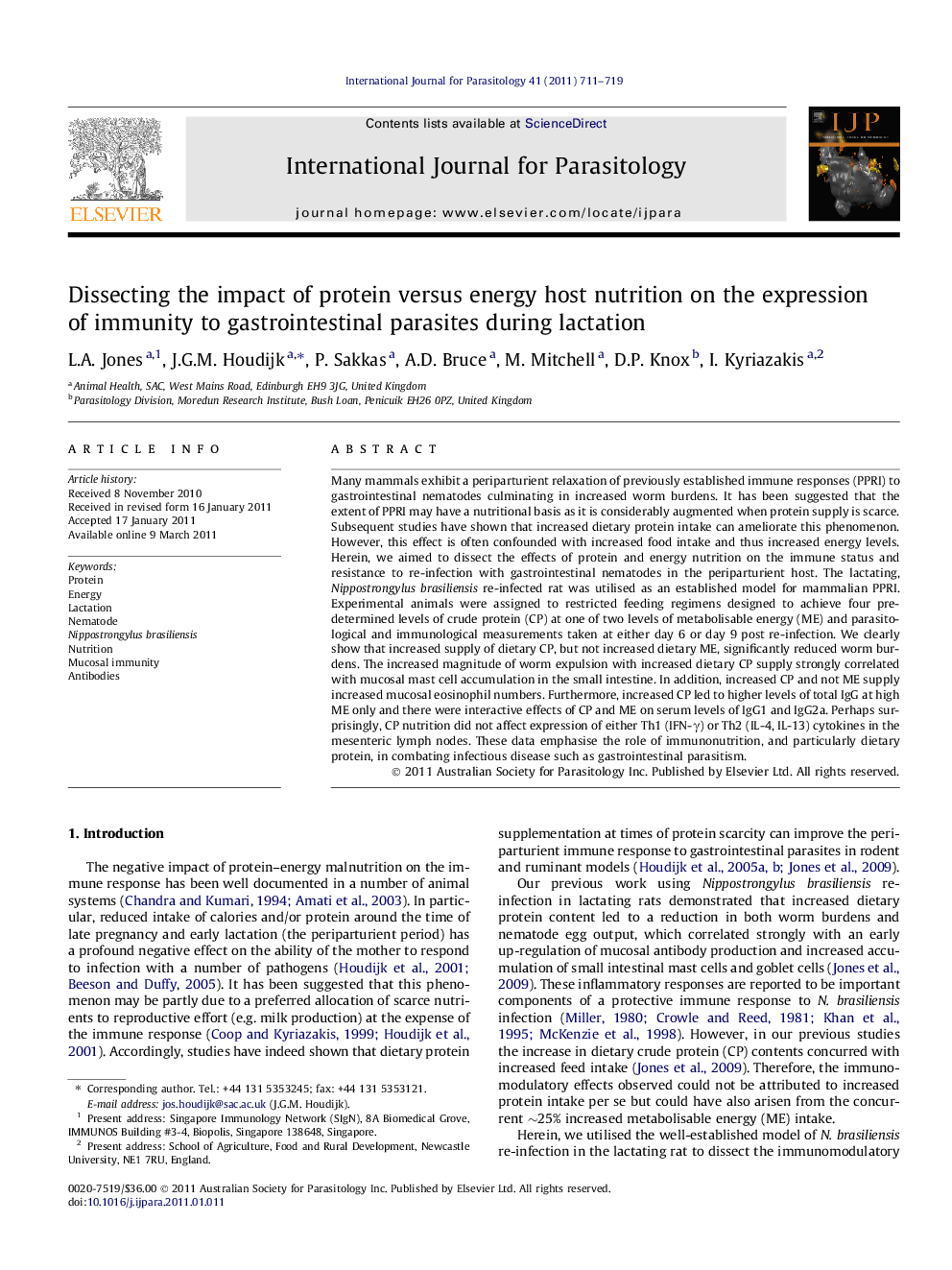| Article ID | Journal | Published Year | Pages | File Type |
|---|---|---|---|---|
| 2436235 | International Journal for Parasitology | 2011 | 9 Pages |
Many mammals exhibit a periparturient relaxation of previously established immune responses (PPRI) to gastrointestinal nematodes culminating in increased worm burdens. It has been suggested that the extent of PPRI may have a nutritional basis as it is considerably augmented when protein supply is scarce. Subsequent studies have shown that increased dietary protein intake can ameliorate this phenomenon. However, this effect is often confounded with increased food intake and thus increased energy levels. Herein, we aimed to dissect the effects of protein and energy nutrition on the immune status and resistance to re-infection with gastrointestinal nematodes in the periparturient host. The lactating, Nippostrongylus brasiliensis re-infected rat was utilised as an established model for mammalian PPRI. Experimental animals were assigned to restricted feeding regimens designed to achieve four pre-determined levels of crude protein (CP) at one of two levels of metabolisable energy (ME) and parasitological and immunological measurements taken at either day 6 or day 9 post re-infection. We clearly show that increased supply of dietary CP, but not increased dietary ME, significantly reduced worm burdens. The increased magnitude of worm expulsion with increased dietary CP supply strongly correlated with mucosal mast cell accumulation in the small intestine. In addition, increased CP and not ME supply increased mucosal eosinophil numbers. Furthermore, increased CP led to higher levels of total IgG at high ME only and there were interactive effects of CP and ME on serum levels of IgG1 and IgG2a. Perhaps surprisingly, CP nutrition did not affect expression of either Th1 (IFN-γ) or Th2 (IL-4, IL-13) cytokines in the mesenteric lymph nodes. These data emphasise the role of immunonutrition, and particularly dietary protein, in combating infectious disease such as gastrointestinal parasitism.
Graphical abstractFigure optionsDownload full-size imageDownload high-quality image (50 K)Download as PowerPoint slideHighlights► We used lactating rats to assess nutritional sensitivity of immunity to parasites. ► We independently assessed effects of protein and energy nutrition. ► Only dietary protein affected immunity to Nippostrongylus brasiliensis reinfection. ► Such differential effects were strongly evident in mucosal mast cell responses. ► Nutritional sensitivity of these mast cell response correlated with worm burdens.
